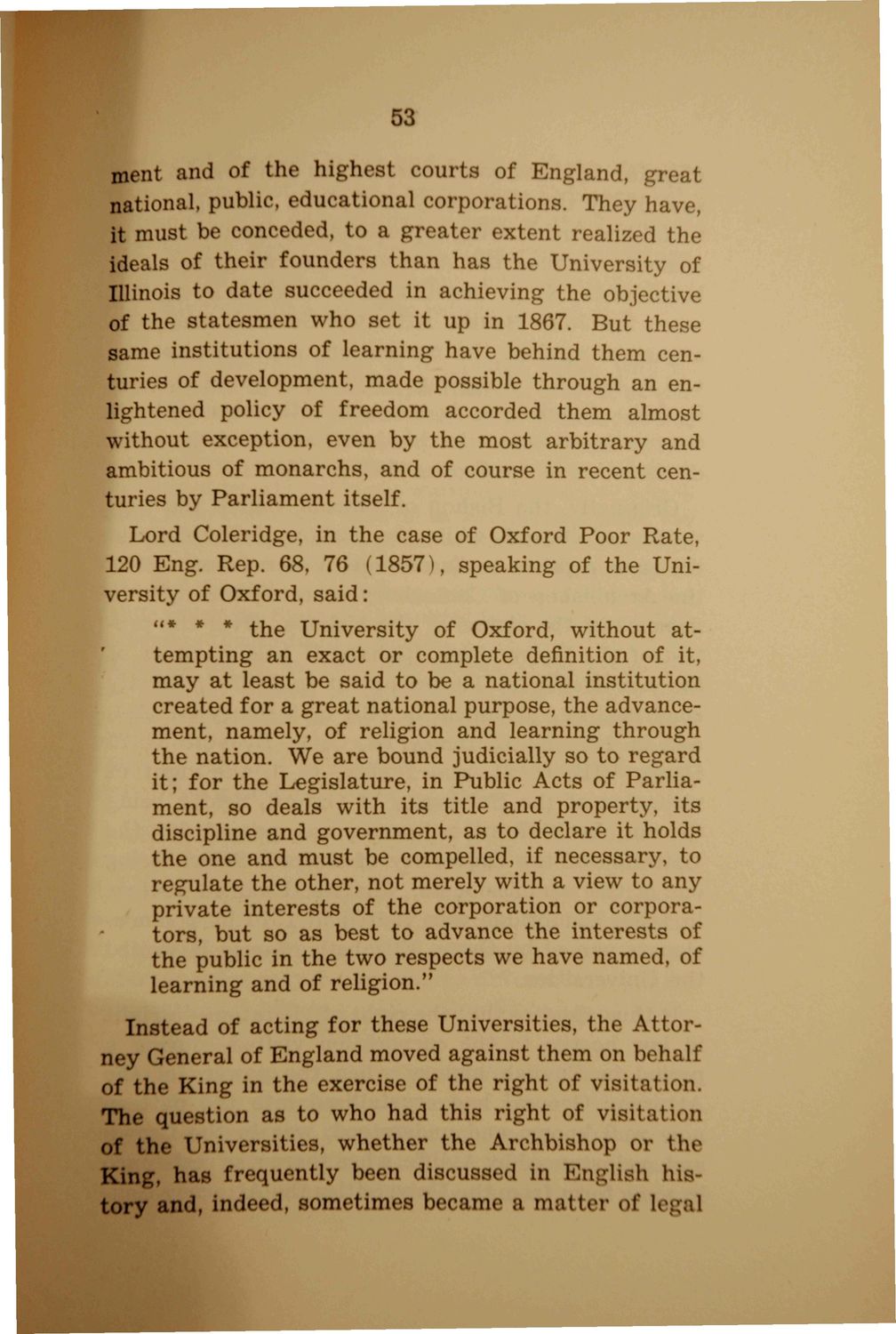| |
| |
Caption: Booklet - UI Charter of Freedom (1942)
This is a reduced-resolution page image for fast online browsing.

EXTRACTED TEXT FROM PAGE:
53 and of the highest courts of En land, gt d national, public, educational corporations. They have, it must be conceded, to a greater extent realized the ideals of their founders than has the University of Illinois to date succeeded in achieving the objective of the statesmen who set it up in 1867. But these same institutions of learning have behind them centuries of development, made possible through an enlightened policy of freedom accorded them almost without exception, even by the most arbitrary and ambitious of monarchs, and of course in recent centuries by Parliament itself. Lord Coleridge, in the case of Oxford Poor Rate, 120 Eng. Rep. 68, 76 (1857), speaking of the University of Oxford, said: * * the University of Oxford, without attempting an exact or complete definition of it, may at least be said to be a national institution created for a great national purpose, the advancement, namely, of religion and learning through the nation. We are bound judicially so to regard it; for the Legislature, in Public Acts of Parliament, so deals with its title and property, its discipline and government, as to declare it holds the one and must be compelled, if necessary, to regulate the other, not merely with a view to any private interests of the corporation or corporators, but so as best to advance the interests of the public in the two respects we have named, of learning and of religion." Instead of acting for these Universities, the Attorney General of England moved against them on behalf of the King in the exercise of the right of visitation. The question as to who had this right of visitation of the Universities, whether the Archbishop or the Kin< has frequently been discus \\ in English history and, indeed, sometimes becam a matter of 1 ;al l<# m ent
| |